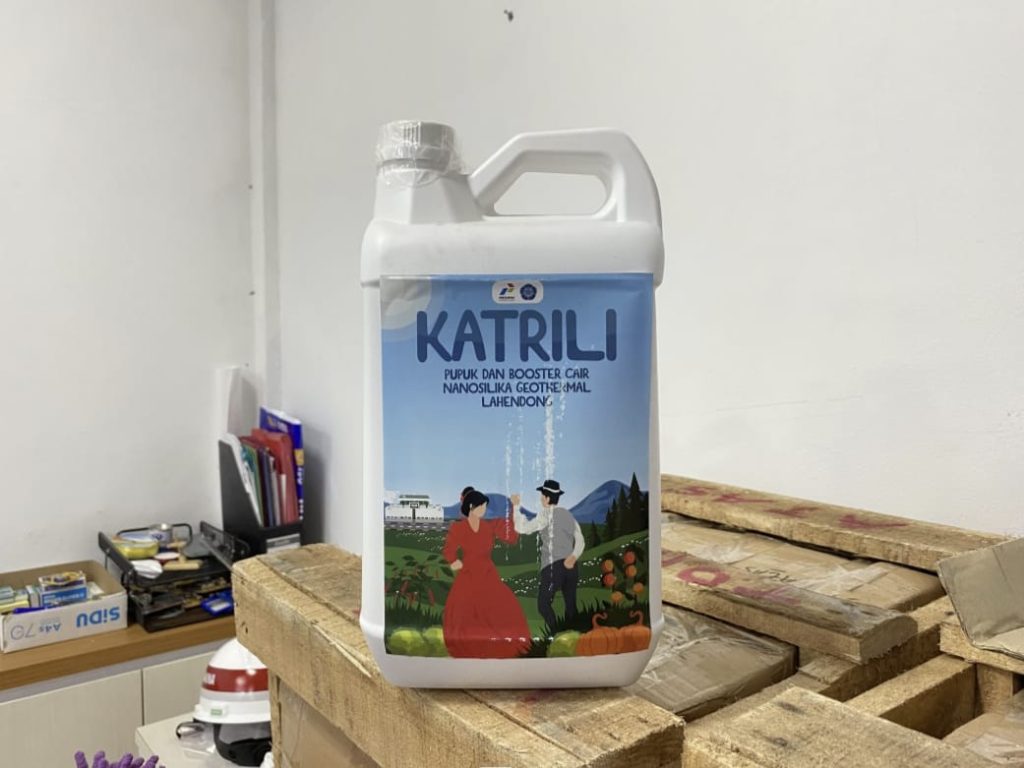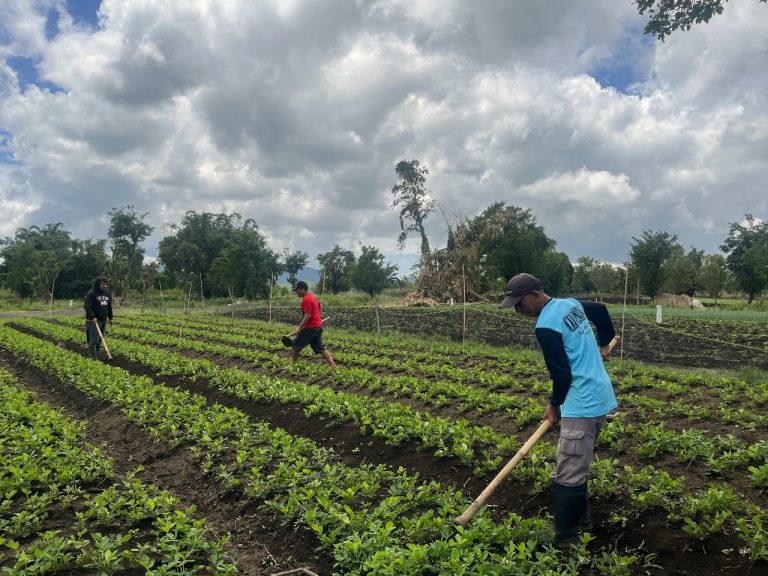Jakarta — PT Pertamina Geothermal Energy Tbk (PGE) and Universitas Gadjah Mada (UGM) collaborate to tap geothermal byproducts to boost sustainable farming, PGE said in a release on May 22.
This partnership has given birth to Katrili Booster, a soil enhancement product made from silica, commonly considered waste in geothermal production, and chitosan derived from shrimp and crab shells. The result is an eco-friendly innovation that enhances plant growth, strengthens cell structure, and increases resilience to pests and extreme weather.
“In Lahendong, where many communities rely on farming, we saw an opportunity to turn geothermal byproducts into something beneficial,” said Novi Purwono, General Manager of PGE’s Lahendong Area. “Our collaboration with UGM is rooted in this goal—maximising the value of geothermal beyond electricity.”

The innovation began during the Covid-19 pandemic when UGM geothermal expert Pri Utami collected geothermal byproducts from Lahendong for analysis. Discovering high silica content, she envisioned turning the substance into a crop booster. Collaborating with nanotechnology expert Ronny Martien from UGM’s Faculty of Pharmacy, the team developed Katrili Booster through intensive research and trials.
“Silica acts much like volcanic ash, which we know enhances soil quality,” explained Utami. “With chitosan added, it forms a protective layer on plants, improving water retention and pest resistance.”
Katrili is applied by mixing it with water and pouring it directly into the soil. It has shown positive results in crops like tomatoes, peanuts, shallots, and rice. Farmers in Tonsewer Village, Minahasa—Rommie and Danni—attested to improved crop quality and resilience after using the booster on their tomato plants.
“The fruits are larger, more uniform in ripening, and less prone to rot,” said Danni. “It’s especially helpful in extreme weather.”
The name Katrili was inspired by a traditional Minahasan dance symbolising harmony and gratitude, values echoed by the farmers. “It feels empowering to use something developed from our own land,” added Rommie.
Beyond Lahendong, Katrili is being introduced to other regions through UGM’s student community programs, and farmer training is ongoing to ensure proper use.
To celebrate its success and promote food security, PGE and UGM will host a Panen Raya Katrili (Katrili Harvest Festival) in Lahendong on May 26. The festival will feature local farmer groups, traditional foods, and cultural performances.
This initiative reflects PGE’s broader commitment to environmental sustainability and its role in supporting Indonesia’s goal of net-zero emissions by 2060. It showcases how clean energy can also cultivate greener agriculture. Indonesia has vast geothermal reserves, second only to the United States. (nsh)
Banner photo: Farmers in Tonsewer Village, Minahasa used Katrili Booster on their tomato plants (Source: PGE)















